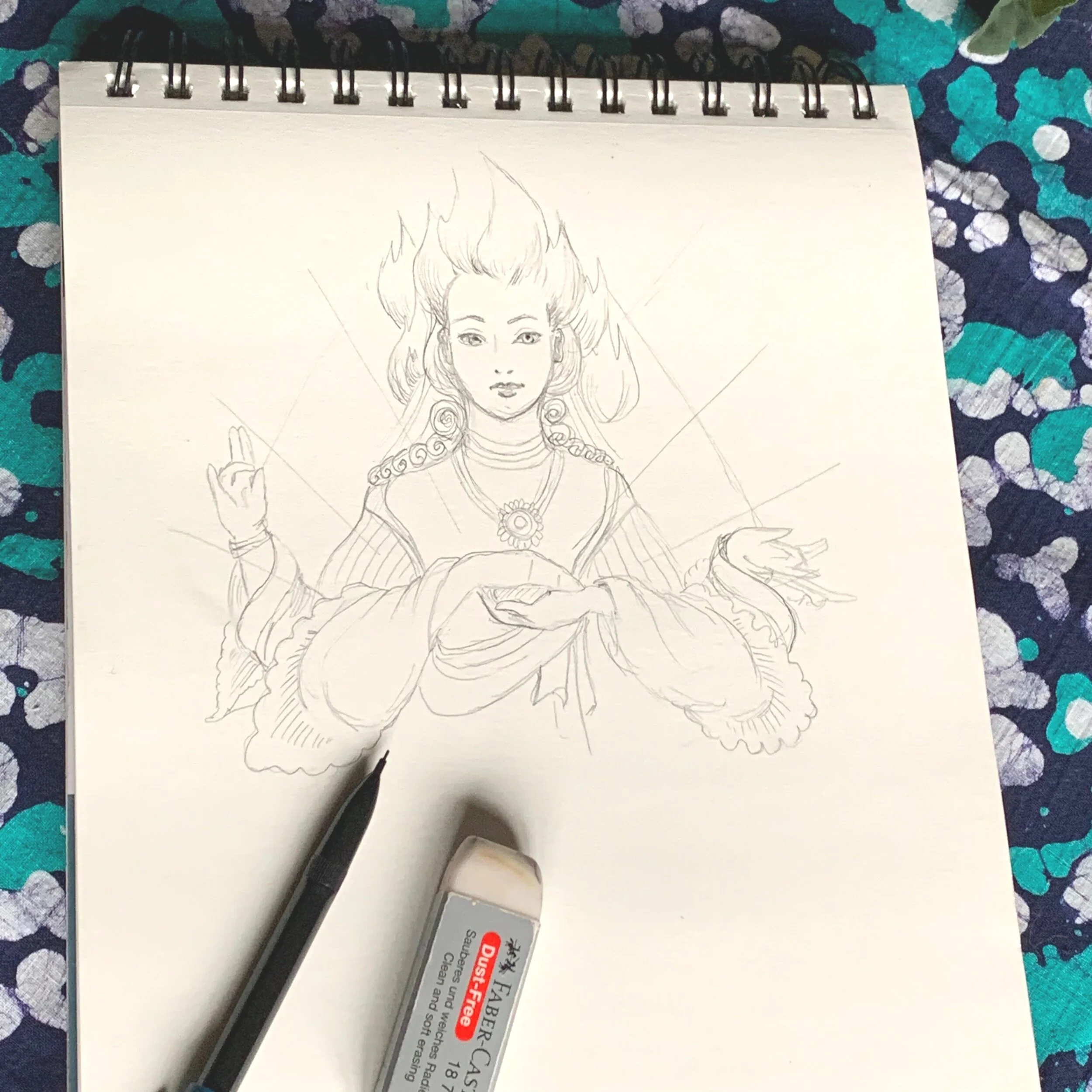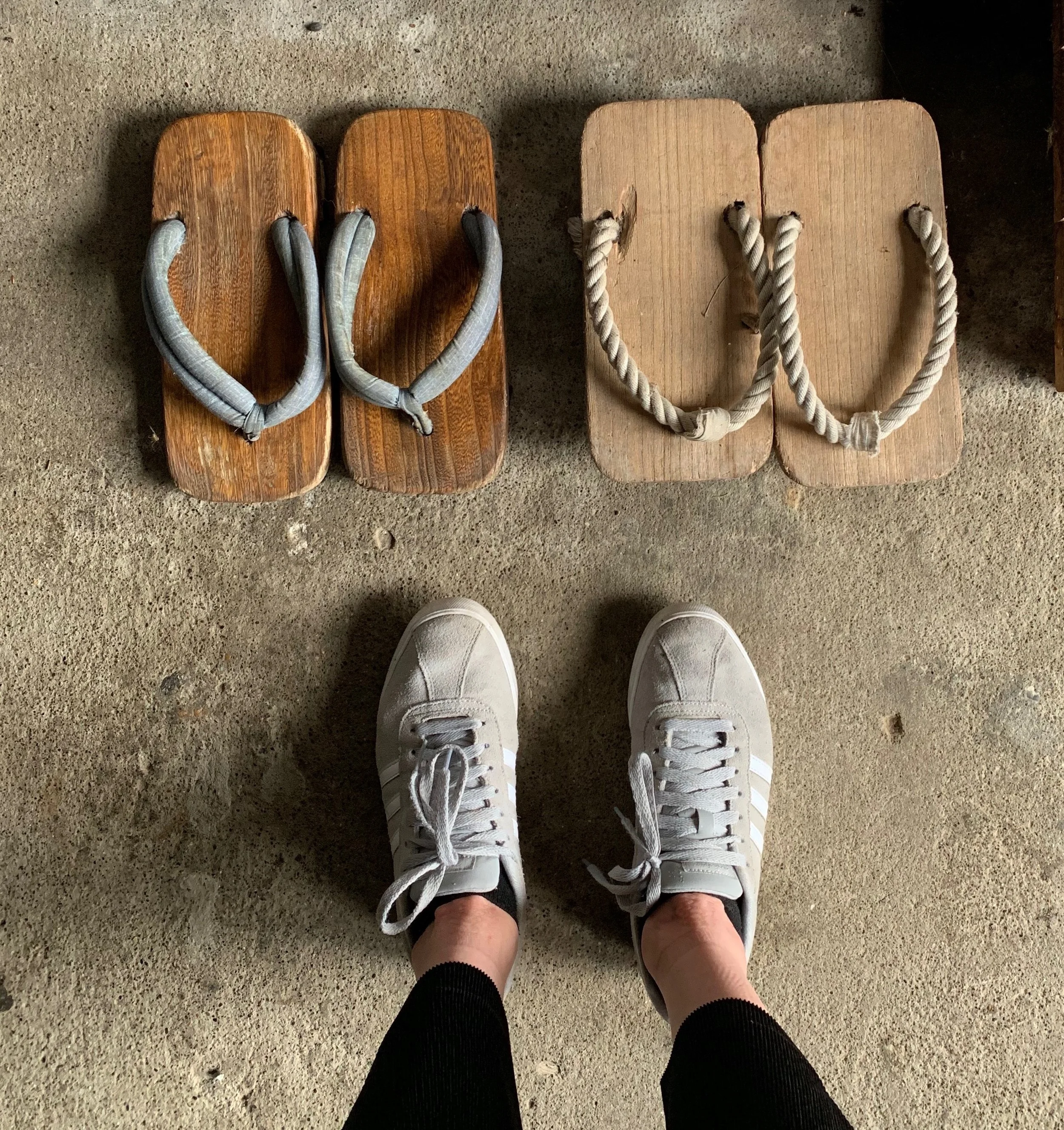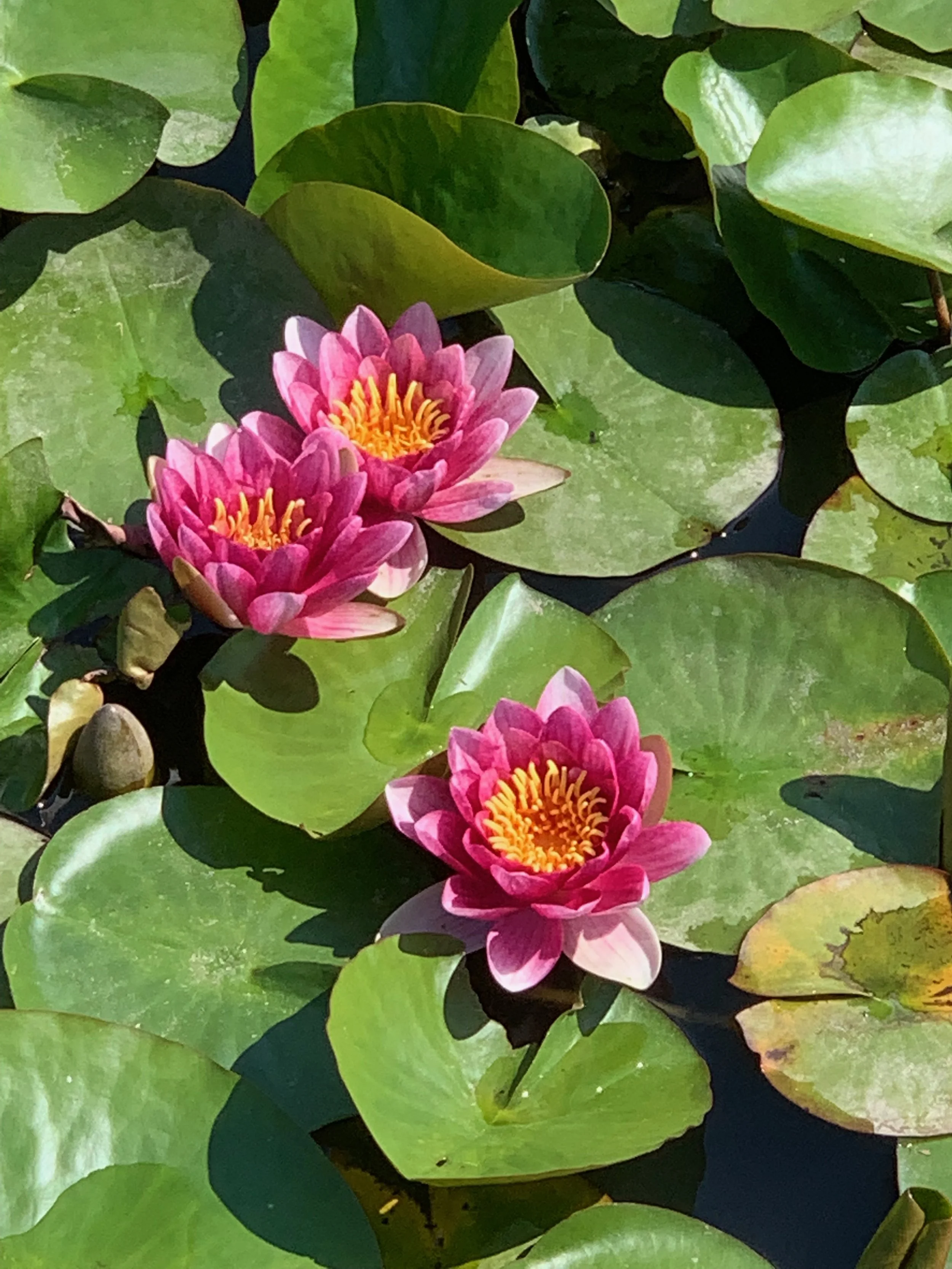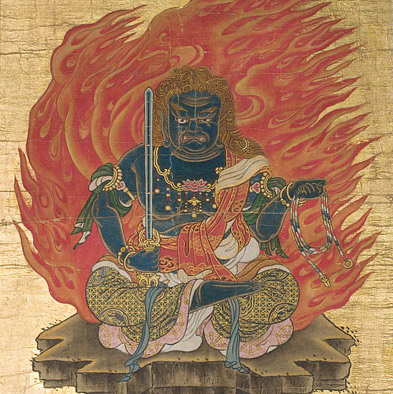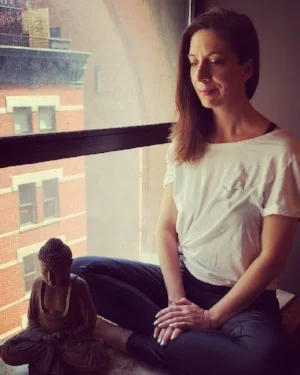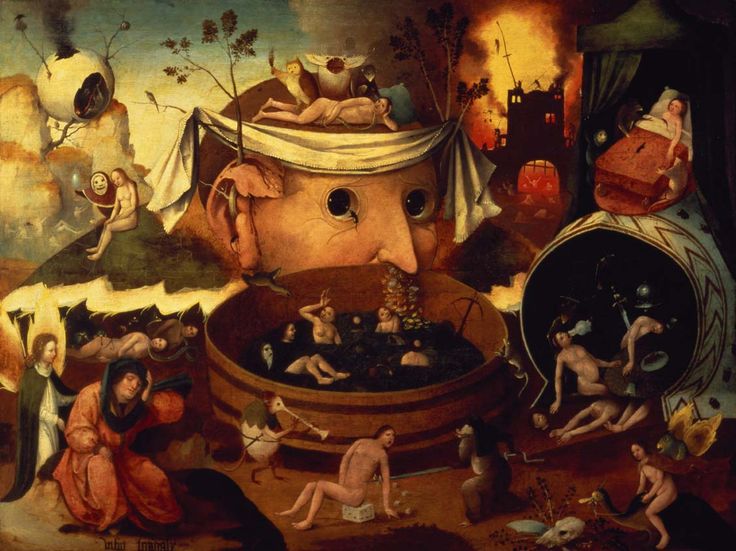Every Sunday, I organize a Reiki circle with the lovely Andrea Kartika Deierlein from Thrive Reiki (in my community, Reiki circles are the new Sunday brunch). Before we admit people in the Zoom Room, we spend a few minutes chatting about the day’s theme or meditation.
Last Sunday, we were talking about how we can’t make plans for the future. This is hard on us: we both have family members in Europe, and we used to look forward to those visits.
It made me think about how I am pretty much a “looking-forward” kind of person. Looking forward to the day I would graduate and start working encouraged me to push through years of boredom at university. When I worked full time, looking forward to a Reiki retreat or a vacation allowed me to get through long days of insane stress.
Looking forward to meeting someone, got me through some terrible dates (every New Yorker goes through these—it’s like a rite of passage to test your grit.)
In hindsight, however, I realize that—on many occasions—the “looking forward” also made me stay in situations that were not worth it: toxic relationships, jobs with poor boundaries, etc. I tend to live in the future instead of the now, and that sometimes limits my ability to make changes that would allow me to live the present with more ease.
Of course, I am looking forward to this pandemic madness to end, loosen up, or whatever term you would like to use. But, given the current uncertainty, it’s probably the first time in my life I have no plans, nothing to look forward to or, should I say, nothing to escape too. I am just drifting.
And although this lack of things to look forward to in the future feels horribly depressing at times, it’s also very rich in gifts. I am more present when I eat and enjoy food a lot more (and I am an average cook at best). Washing the dishes feels like a meditation. I even discovered that I walk with most of my weight on the right side (why?!?), which is probably the reason I struggle with my left side in martial arts. Weird insightful experiences that only happen in emptiness.
As I see the world opening up from my computer (we in New York seems to be trapped in this lockdown forever) I wonder if, as soon as I can book a ticket, this ability will vanish, if I will trade the present once more for a future to look forward to or if I will find the right balance.
How are you dealing with the uncertainty? I would love to hear. You can reply to this email or DM through Facebook or Instagram.
Sending much love,
Nathalie
As the weeks go by, it amazes me how fast we can adapt to the new normal. I do what I need to do, and then my new chill time consists of texting with my niece about which face masks are the cutest, watching martial art movies, and indulging in some social media binging.
On these binges, I see many posts like “anxiety is a choice,” “anger is a choice,” “gratitude is a choice.” I totally get and agree with this sentiment. But I also wonder, is it as simple as that? Do we have a choice when our nervous system is in overdrive? When our survival brain is pumping adrenaline like mad into our bodies to keep us safe from what it perceives as aggression?
So perhaps it’s not really a matter of choice, but a practice, like in martial arts. Instead of repeating a move over and over until it becomes second nature, we learn how to come back to our breath when we lose it. To our bodies. To the present. Over and over. To let go of the future, of over planning, of anxiety. To forgive ourselves when we become angry or forget to be grateful. Over and over, until it gets easier.
Remembering that, like in meditation, getting distracted by anger or anxiety is not a “fail.” It is part of the practice.
That the healing is in the return.
Not in being always perfectly centered.
It feels like day 813205 of the lock-down. It's rainy. I am not feeling that great. And that's OK.
Sometimes, I try to justify all of this madness by thinking of all the good things coming out of it. I am practicing a lot. Becoming closer to friends and family who live far away. And—because of my niece's obsession with a psycho-socialite that teaches killer workouts—I may even end up with a soupcon of abs for the first time in my life.
But staying positive all the time can feel exhausting. On those moments, I need to let go. To understand shit happens, and there is no need to justify it. To eat pancakes for dinner. To take a day off Zoom and listen to my worries, my anger, my grief. To hold space for these feelings that are often overwhelming, often enlightening.
Because balance is only found in that tiny space that lies between our joy and our grief, our hopes and fears, our OKness, and not OKness. Without darkness, there is no light.
Love,
Nathalie
My Belgian family has a knack for weird stories. Fake suicides that become real. Covering up for Russian spy networks during WWII, and marrying exotic dancers with fake names stolen from novels. They lost many houses to gambling, and many lovers to drink. No wonder they ended up ruined.
But despite their madness, they were also survivors. A great, great uncle survived close to two years in a concentration camp at 60. When he was released, he avoided the issue by joking that the “simplified meals” helped him get rid of gout.
My great uncle made his way out of occupied Belgium and France bribing guards with cognac.
And my grandparents and father survived 13 days in a lifeboat with scarce food and water after their boat was sunk by a German U-boat.
Through the years, they have been my inspiration. All of them…except my grandmother. She is reported to have spent the 13 days in the lifeboat putting foundation powder on her face to look immaculate while repeating “this can’t be happening” like a mantra.
She made it through in one piece. And now that the first thing I do every morning is to put on lipstick, I have a newfound understanding and respect for her. Like her, this simple routine helps me feel like myself again.
We all are different. And we all have our ways to cope. For me, it’s lipstick and meditation; for you, it may be yoga, and, for others, it's a zoom happy hour. The important thing is to check with ourselves:
What do we need to feel more calm and centered?
What brings a little bit of happiness and joy to our life right now?
Is it reasonably healthy for us emotionally and physically?
Is it respectful of other people’s well-being?
And then go for it, without self-judgment and with loads of compassion.
Love,
Nathalie
[Excerpt from the upcoming Reiki Healing Handbook].
Imagine the universe and everything in it: humans, animals, plants, mountains, and even stones. All of it has energy—yes, even the stone! Although invisible, this energy is unlimited and all-encompassing. While science is now demonstrating the impact of energy in our lives, ancient cultures have been aware of this fact for centuries. Known as Chi in China, Ki in Japan, and Prana in India, energy has been and continues to be the basis for many healing modalities.
How does energy healing work? Well, imagine your energy flow is a river. When it flows freely, you function optimally—feeling good, energized, and inspired. However, life’s challenges can affect your energy. Worries, fears, anger, and trauma pile up like stones and mud in the river, obstructing its flow until only a trickle is left. You may feel drained, disconnected, and can experience physical pain or disease. So, how can you get your energy flowing freely again and, by doing so, jumpstart your body’s innate ability to heal? Meet Reiki, a century-old Japanese practice that combines hands-on-healing and mindfulness techniques to restore the flow of energy, promoting balance and well-being at all levels: body, mind, and spirit.
The word “reiki” can be translated from the Japanese as “universal life force” or “spiritual energy.” By connecting more consciously with this energy, or Ki, through the Reiki system of healing, you can feel more relaxed, centered, and improve your overall health. You may also start an incredible journey of self-discovery, self-forgiveness, and self-acceptance—letting go of anger and worry to discover a life filled with gratitude and a sense of purpose.
Originally developed as a spiritual practice by its founder, Mikao Usui, Reiki has become one of the most popular energy healing modalities in the West because it’s simple, effective, and can be performed by anyone. It is a nonreligious practice. It is also non-invasive, which means it won’t interact with medications. Reiki practice consists of five elements:
1. Precepts—To meditate upon or use as guidelines for the other aspects of the practice.
2. Hands-on Healing—The placement of hands on key points of the body to balance energy.
3. Meditations—To center the mind and build energy.
4. Mantras and Symbols—To connect to more specific types of energies or achieve a determinate state of mind.
5. Attunement—To significantly increase the flow of energy. It is also a way for a Reiki master to transfer wisdom to a student.
All of these—except the attunement, which is performed by a Reiki master—can be practiced on the self. Self-practice is, in fact, the cornerstone of Reiki practice. Because when we heal ourselves, we heal the world. This may sound like a bit much. But think about it: When you feel calm and happy, every person around you benefits from it. You also make more conscious choices at work or as a consumer, thereby helping the whole planet. And it all starts with a simple practice: Reiki.
My mom, my godmother, and my aunts live in Belgium. They are four women in their 80s, and I call them the Golden Girls. My Godmother is Blanche Dubois, still flirting at 83. One aunt is Betty White, and my mom is the cranky one. They are adorable...for a few hours. But spending eight days together was… let’s say… instructive?
Seeing myself reflected in my mom (just 40 years later) was between hilarious and terrifying. Although she has her soft moments, she could be defined as a cross between General Franco, a Jack Russell, and a bulldozer.
Meditation helped… to a point. Crankiness seemed to be contagious, no matter how much I breathed. Anytime I got cranky, my mom laughed. “You see,” she pointed out, “this meditation thing is not working!”
Needless to say, meditation for my Golden Girls is the equivalent of GMO veggies for us.
But sitting with my feelings worked. Just not in the usual blissful stereotyped way. Beyond the fact that we all survived my visit without major drama, sitting with my anger, frustration, or panic opened my eyes to new parts of myself.
It also pushed me to make friends with my fear of aging and decide what some of the things I don’t want to lose are. Among them, my curiosity, my sense of humor, and my spiritual practice.
I came back from my trip exhausted, but a clearer, more centered person.
When I teach, the first thing I have to battle is the concept that meditation or Reiki practice will make life perfectly smooth. That there will be no more fear, anger, stress, or frustration. When in reality, they are tools to listen to the lessons and insights these feelings have to offer. Tools to help us feel compassionate and grateful more often than bitter and resentful.
Reiki is not magic, but it does feel like it sometimes.
n Reiki practice, there is a ritual called Reiju, also called attunement. It's a spiritual offering from the Reiki teacher to the student. Although each time you receive a Reiju, it feels different, you often experience a great feeling of love and being home—total oxytocin high.
So when my teacher used me as a guinea pig for a 20-minute long Reiju at a retreat recently, I was ecstatic. And the first few minutes where that: a deep feeling of connection, love, and total wellbeing. But then… things shifted. Fears started popping right and left. I felt shame—what would my teacher think of me being afraid of sharing the Reiju space with him? I felt guilt—why can't I enjoy this? But there was also a part of me just witnessing all of this happening. A part that whispered, just allow your feelings to exist. And there I sat, completely exposed and vulnerable, and it felt great. Not the "high-as-kite-kind-of-great" I was expecting. It was a deeper sense of great: one that came from being seen 100% and loved anyway.
The other day a friend complained about not been seen. This made me think. To be seen we need people who accept us entirely, but we also need to do our part. We need to be brave and vulnerable enough to show everything we are.
My team at the uni. We loved taking pics in black and white because it felt more artsy ;-)
When I was in university, one of my teachers decided to make a deal with the whole class: he would not fail any of us as long as we did the assignments.
The class was on TV and cinema production. The fact that we could not fail didn't make us lazy or careless. On the contrary, it gave us the freedom to take risks and explore themes we would have never considered if we had to be concerned with grades. I remember writing absurd scripts, creating surreal backgrounds from scratch, and learning how to make TV blood (ketchup with grenadine). As a team, we came together without fights. We even figured out how to fake the explosion of a car. We had fun. We also made tons of mistakes, but we learned from them, and those lessons served us well for the rest of our lives.
However, every day of my life, I am a little afraid of failing: of saying the wrong things, giving a half-ass Reiki session, or running out of money when I am old. It's not just me—I see it all around me, constant worry. People are afraid of losing their jobs, of not being good enough, of not being loved.
What if we could do the same in life that my teacher did in class: permit ourselves never to fail. Take the pressure off every decision we make. Understand that if we quit our job, there will always be another one. If we had a fight, we could always reach out. That even if we become who we always wanted to be only for a minute, the rest of our life is not a failure—it's just what we needed to get to those glorious 60 seconds.
A difficult task, and one I am working hard on by meditating and doing healing sessions—but most importantly, by reminding myself constantly that life is an exploration, an adventure, and I can't fail at it. That success is what I define.
When trying to fit in is difficult.
For most of my life, I felt like I didn’t belong—in a country, a job, or even in my family.
I’ve been a foreigner since I left Belgium at eight. Living in Venezuela meant growing up with the Spanish side of my family: ultra smart but more interested in business than art or philosophy. When I was 13, I used to scare the hell out of them by asking, “What are we going to do? Capitalism doesn’t work! Neither does communism! There is no viable economic system!” Or… “Where does the universe end? Is there anything beyond it?” (I gave up on the former but still wonder about the later one.)
Moving to New York was awesome. It gave me the freedom to be whoever I wanted but did little to improve my sense of belonging. We were all drifters.
A few years into my Reiki practice, however, while deep in meditation or offering a session, a sense of connection and wellbeing would settle over me and the words “I am home" would pop into my head.
Home in my own body and mind, but connected to everyone and everything.
A fleeting feeling, it’s true. But a feeling that has given me a sense of belonging anchored in myself, not in temporary situations, relations or possessions. A feeling that allows me to let go of the need to define who I am to others and even myself.
Now when my family thinks I am a Hare Krishna who goes around New York with a begging bowl singing “hare, hare,” because I meditate, I smile. (This is not a joke, they actually do.)
What makes you feel like you are “home”? What gives you a sense of safety and warmth? I would love to hear about it!
Love and light,
Nathalie
Every Sunday evening, I teach a Reiki + Meditation community class at YES, a lovely yoga studio in Ridgewood. It’s one of the highlights of my week. Most of the attendants are young, joyful, and very chatty. As soon as the class starts, however, they go quiet and put on a solemn, “peaceful” expression. It’s too tempting. I make them do the silliest of shakeouts. Regulars now do it laughing, but every week I see the newbies giving me the side eye while thinking, “Is this a joke? Is she for real?” Until we really start... and they discover the class is not about easy guided meditations or Reiki sparkles. By the end of the class, their eyes open in wonder about how good they feel.
Joy is often misunderstood as lack of seriousness or depth when it comes to Western spirituality, probably the influence of more Judeo-Christian approaches. Yet—when we go back to Buddhism—joy is the fourth factor of awakening, just behind energy.
Joko-san, the abbot of the meditation hall in Japan where I spent three weeks, kept repeating every time he saw: “just enjoy breathing, enjoy!” In other words: just breathe, clear your mind from anger and fear, and learn how to embody joy. For yourself and others. And if that sounds pretty much like the Reiki precepts, it’s not a coincidence: Buddhism is one of the roots of Reiki practice.
A few days ago, I spent a whole week with my teacher and mentor Frans Stiene. He is a very joyful teacher. He makes jokes all the time, dances, sings, pokes fun at the shy students. He’s never ashamed of being silly. But he is also one of the Reiki teachers with more knowledge, depth, and compassionate energy I’ve met. Joy makes his teaching approachable. It also makes it easy to sit for hours of training and feel safe to ask the most absurd questions.
Frans many times has said that to offer Reiki, you need to overflow with the energy. That the end goal of the practice is to integrate it into real life. Spreading joy is, in my opinion, a great way to do it.
So, next time you take a meditation class, get a Reiki session, or even a massage, smile and let me know if it made a difference.
Love and light,
Nathalie
I don’t know about you, but my family doesn’t really get the whole Reiki practice thing. My mom, who’s from Spain, thinks it’s some sort of Japanese santeria. She doesn’t say it in so many words, but her not-so-subtle eye-rolling every time I mention Reiki makes it evident. She was visiting me a few days ago, and we started chatting. When I said the word Reiki, boom, there it was: eye rolling.
—But Cotufa—Cotufa or popcorn is my nickname for her—it’s not santeria, it’s just breathing and connecting with your body.
The word breathing caught her attention. She has emphysema.
—What do you mean, breathing?
—Using your breath to align mind and body.
I left out the word energy on purpose to avoid the famous Cotufa eye rolling.
—Breathing into your body? That makes no sense. You can only breathe with your lungs.
—Think of breathing more in terms of awareness. You use your breath to bring your awareness to different parts of your body: hands, feet, skin.
Blank stare.
When we’ve been practicing for a long time, we start using terms like breathe with your whole body or create spaciousness. But these terms sometimes feel very vague and esoteric to people who have not practiced any mindfulness techniques.
In the case of my mom, simple facts caught her attention more than terms like non-duality or balancing energy systems. Her eyes came awake at the idea that they’re 100 million neurons in the gut and that, when you breathe and expand your belly, you relax that area. Or that creating spaciousness could be taken as using your whole nervous system versus just your brain.
I’m not saying that Reiki talk should become all about science. It’s, after all, a beautiful spiritual practice that goes beyond that. But there are many layers to this system. You can practice Joshin Kokyu Ho for years and still discover new depths to this meditation.
Simple, down to earth facts may prove appealing to some. For others, it may make the practice to sterile and be a complete turn off. It is up to us, as teachers to go deep enough into our practice that we can provide the right guidance.
The Japanese deity Fudo Myoo is associated both with Iaido and Reiki practice.
As I prepare for my next Iaido test—a Japanese martial art based on the art of drawing the sword—part of the process is to par down my appearance. Colorful nail polish will give way to nude. Jewelry will be gone—all of it. My favorite berry lip color will give way to plain lip balm.
That’s because when you do an embu—performing a series of Iaido katas in front of others—the only thing that’s supposed to shine is your sword.
In Japanese martial arts, the sword represents wisdom.
As a practitioner of Iaido, you must let go of distractions and adornments, and just allow whatever wisdom you’ve acquired to shine through. Humbly yet without shame.
This week, it hit me: the same can apply to Reiki.
We may love crystals, rituals, and intentions. They may help us find ourselves in the “right space.” But in time, we need to let go not only of anger and worry, but also of spiritual crutches, adornments, and distractions.
In our Reiki practice—as in Iaido—the only thing that should shine is the bright light of our presence. Humbly yet without shame.
The other day I was reading in The New York Times an article about the impact of positive people. It mentioned that in Japan, women thrive until very old age because most are part of a "Moai,” a social group that forms to provide different kinds of support: social, financial, health, or spiritual.
And it made me think about us, New Yorkers.
Many of us have groups of close friends with whom we eat, party, share adventures, process our breakups, etc. But in a city where we all pride of being independent and fierce, how much emotional and spiritual support do we really take in? How open are we to being vulnerable?
The other day I was offering a Reiki session to one of my clients. It took her a long time to open up and receive energetic support. Once she did, she was able to let go of stress, relax and truly benefit from the session. But her first reaction was resistance.
Receiving support has never been my forte either. I still have to force myself to ask for help. But every time I do it, I’m like, “duh! It was so easy with someone else's help!”
One of the end goals of Reiki practice is to let go of anger and worry. In my experience, it is a lot easier to let go of something when you have the right kind of support. We worry less when we know someone has our back. Anger doesn't have such a firm hold on us when we feel loved, energized and accepted.
No matter how strong or independent, we all are interconnected. Which means that whenever life throws us down, there is a giant energetic net in which we can fall back. It just takes a little of awareness to feel it.
My practice to feel more connected to others:
I add a loving-kindness meditation twist to the Reiki meditation Joshin Kokyu Ho.
- Sit with your back straight. Close your eyes and place your hands in your lap, palms facing upward.
- Inhale and feel the energy coming in through the nose and moving down to the Hara (an energetic point 2 inches below your belly button.)
- Pause, feeling the energy filling your entire body.
- Exhale, expanding the energy out of the body through every pore, creating a big bright sphere of light that surrounds you.
- Repeat steps 3 to 5 as many times as you wish.
- When you have this routine down, bring someone you love into your bubble. It can be a pet or a friend/family member that brings you joy. Notice the difference in your body, especially your heart area.
- After a few breaths, let go of that pet/person and imagine your sphere getting bigger: filling the room, covering the neighborhood, the city, even the whole world. Notice any change in your feelings or body.
- After a few minutes stop the visualization, and sit for a moment in the space you created breathing normally.
A few weeks ago, I took the subway to pick up the car in the garage and drive my family to Connecticut. I was carrying my dog, a freezer bag, and my regular bag, in which I had stowed my computer, wallet, phone, keys, etc.
I exited the train on Christopher Street with the dog in my arms, the freezer bag on my left shoulder… and no bag.
As I watched the number 1 train disappear with my bag in it, my heart almost stopped. I couldn’t breathe. I didn’t know what to do. I had no money, no phone, no keys and there were two nervous octogenarians waiting for me.
I started spiraling down for a couple of minutes and then... I bounced back. I started breathing deeper and I felt certain things would work out. And they did. I called my phone from the garage and a lovely voice picked up to tell me my bag was safe and I just needed to go and pick it up.
I’m so grateful for this person's kindness. But I’m also deeply grateful for my practice and the fact that I didn’t completely break down (my first impulse when in this kind of situations is to cry while screaming, "Why me?").
When I started my spiritual practice, I did it because I wanted a life where nothing ever went wrong and I always felt great. Instead, crap still hits the fan, but I've changed. Most times I can keep my center. And many times, what seems like disasters end up being my best stories.
Many of us have pondered on our life purpose. Mostly when we feel stuck, unhappy or empty. Are we meant to slave in our office in order to achieve corporate success or find our passion so everything falls into place (or so they tell us)?
Are we supposed to help, serve or inspire others? Or follow our inspiration and become athletes, artists, leaders?
Do love, family, marriage gives us a purpose?
But, do we really need a purpose to live a meaningful life?
Or do we just need to live meaningfully?
I actually like the idea of life purpose, but on the other hand, have I been narrowing my outlook by trying to define it?
I was discussing this with a friend the other day. We both kind of felt it was probably just semantics.
But the more I sit with these concepts of having a life purpose versus "just being"—and living every minute of our lives up to who we truly are—they feel different.
One feels narrower.
The other feels open, accepting and liberating.
So for now, I think I will just be. Taking life minute by minute.
Practicing Reiki, smiling at the lady who prepares my perfect green tea latte at Starbucks, and not being too hard on myself when I check Instagram a bit too much.
ps: would love to hear your thoughts on the matter! Leave a comment.
Image: False Mirror, from Belgian painter René Magritte
Three years ago, I took a sabbatical from advertising to dive deeper into my Reiki practice. It was a priceless experience but one that let me with the certainty that, what I wanted, was to integrate my practice into everyday life.
Back in advertising, I get to practice Do not anger and Do not worry almost everyday. Many other times I get to feel the beauty of Be grateful. But until now, the precept of being compassionate to yourself and others was elusive. Sometimes I would feel compassion for others or for myself (ok, also indulgence.) But the two together? I didn’t even know there was such a thing and that it would feel so different.
So when my boss told me I was to travel to San Francisco for a meeting, I had no idea what was in store for me. I was just thinking, “Yes: Miles!”
My plane was overbooked and given that it was United (skull fracture, anyone?) I was a little worried. Boarding was very peaceful and cordial, if a bit messy. I got to my aisle seat on the last row, just next to the bathroom. Great!
People started to settle next to me. Mostly families with toddlers and babies. Excited. Scared. Screaming. Very, very loud. Not the most auspicious beginning. But it was a short flight: only 6 hours.
Well, not really. The engine had an issue, so we were delayed. And delayed. And delayed.
People were restless. Parents fretted. Toddlers pooped, screamed, cried, and pulled at each other’s hair. A young couple decided to break up next to me while waiting for the bathroom (really, people?). Groups were forming next to me and would hit my shoulder. The dad sitting next to me kept on making me stand up to go and check on his family. Then an “emotional support” dog wasn’t feeling well and the owners were desperate trying to get him to do number 2 in the bathroom, which he did on the floor after hours of stress and just before a woman walking barefoot came in.
The noise. The smell. The pushing.
I just wanted it to stop. I felt like crying and screaming, ‘Why me?’
Sniffing a bit, I put my earbuds on and started doing purifying breath (a Reiki-practice that’s grounding and calming).
And there amidst the chaos, I started to feel peaceful and light.
I was emotionally engineered by my upbringing to be a victim. It’s my default mode. But at that moment it dawned on me: I wasn’t one. We all were struggling. Parents were trying their best to manage their kids. Flight attendants were trying to remain calm and helpful.
We were all in the same boat.
The expression may be trite, but I felt the meaning with my whole body and spirit.
The lightness, warmth and peacefulness that ensued allowed me to survive the flight and, even better, actually enjoy it.
When the twin toddlers in front of me started blocking my screen with their tiny hands in the middle of a movie, I tickled them. Seeing the relief on the mom’s face (who probably was expecting me to scream) was worth missing a few minutes of what I had to admit was a very boring movie.
When the flight attendant brought me the wrong dinner, I just smiled and asked if there was any other choice left. There was and it ended up being complimentary (with United: absolutely flabbergasting).
I do have one confession: I loved when we hit pretty rough turbulence and people remained in their seat.
After almost ten hours in the crowded plane, I landed in San Francisco energized, content and ready for my journey there.
And inspired to keep on exploring the Reiki precept “Be compassionate to yourself and to others.”



